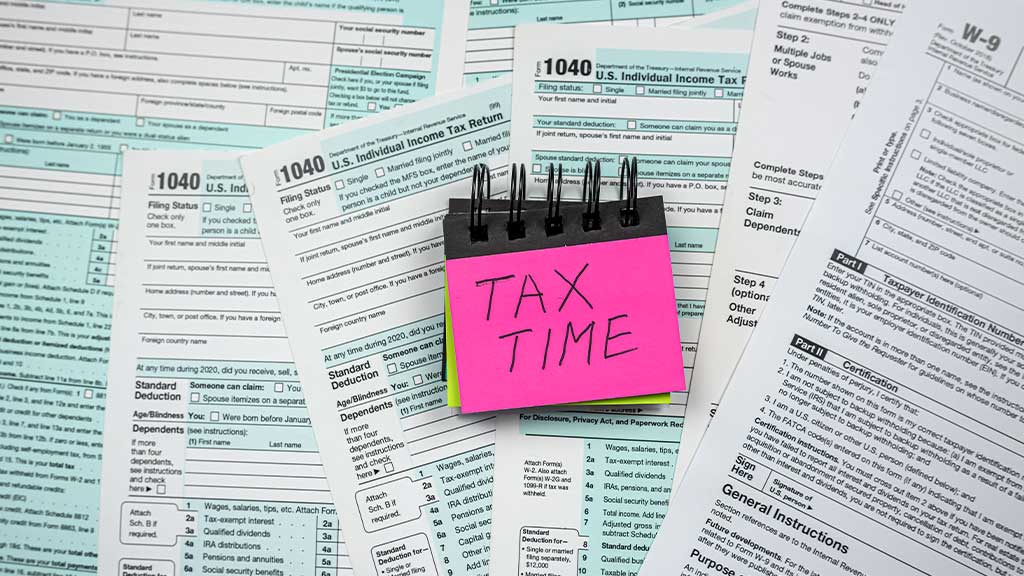Uncle Sam is about to come knocking for his dues, and every caregiver in an American family is wondering, “Is family caregiver income taxable?” One in five people in the US have caregiving responsibilities, and that is reason enough to show concern about whether you owe the IRS.
On average, a family caregiver has an annual budget of about $7,200 dedicated to caring for a loved one. The thought of having to settle tax dues can make you feel even more exhausted. That’s why it’s crucial that every family caregiver familiarize themselves with the IRS caregiver rules.
Thankfully, we’ve done some homework to save you the hassle and clear up some of your questions about family caregiver income tax.
Is Family Caregiver Income Taxable?
Quickly to the big question, “Is your family caregiver income taxable?” The quick answer is that it depends on different conditions. But before delving deeper into this, let’s first understand what family caregiver income is.
What is family caregiver income?
Family caregiver income is any financial gain you receive for taking care of a loved one or a family member. For Example if you have a disabled spouse, you will get paid for a caring spouse. It’s not just money you’ve been paid as a token of appreciation; it also includes any gains through government assistance programs and reimbursements for your caregiving expenses. For instance, if you paid for a family caregiver course, the reimbursement of the fee is subject to taxation.
Apart from considering what is regarded as income, you need to look at things from the IRS perspective. Some of the questions that the taxman also asks include: What’s your current status of employment, are you caring for your dependent, do you live in the same house as the care recipient?
We’ll answer these questions in a short while. Now, let’s clarify how the IRS categorizes family caregivers, and what type of family caregiver income is regarded as taxable and what’s not.
Does the IRS Regard Family Caregivers as Employees?

If you’re a family caregiver, before you start worrying about whether you owe self-employed caregiver taxes, it’s important to know what the IRS thinks about your employment status. Generally, family caregivers are not employees, according to the IRS. So that simply means they don’t have to pay taxes.
However, different scenarios prompt them to report their taxes. For example, if an insurance company issues a family caregiver a Form 1099-MISC, they’re required to report the income.
Taxable vs. Non-Taxable Family Caregiver Income
Before you report caregiver income for taxes, you need to understand what’s taxable and what’s not. Generally speaking, depending on the situation, payments made to family caregivers may be categorized as taxable or non-taxable income.
Taxable Family Caregiver income
When is family caregiver income taxable? When a caregiver receives payment for providing their services, the money is subject to taxes. This implies that any income a family caregiver obtains from providing care for a loved one is subject to taxation. Additionally, taxes are required on any remuneration received from government aid programs.
Here are more scenarios in which the income of a family caregiver is taxable:
Family caregivers earning more than $2,700
It’s a common practice to pay one of the family members to take care of a loved one at home. Many families in the US do it, the same way they would pay a professional caregiver. In the context of family caregiving, is there anything like paying caregivers under the table? It all depends on the caregiver’s agreement with the person paying for the service.
However, there’s a threshold pay amount that, if exceeded, both the caregiver and the person paying have to report taxes. This threshold increases every year, and as of 2023, it was $2,600. That means if the income is more than $2,600, the person paying you becomes an employer.
In that case, they must pay Social Security and Medicare taxes on the caregiver’s wages. These taxes are 15.3% of the wages, where both the caregiver and the employer contribute equally towards the amount. The threshold for 2024 is currently at $2,700, or probably higher than this.
Professional caregiver employed by your family

Suppose you have a caregiving agency, and your family contracts you to offer your services to a family member. You must report the income earned and pay your taxes. If you don’t operate a caregiving business or are not hired by one, you don’t need to pay any taxes for taking care of a family member.
Professional care help
Families can also hire household assistants and caregivers to assist with household chores at home. In such a case, the house becomes an employer, which extends various tax-defined statuses to their employees. Some of the common home assistance jobs include caretakers, cleaners, private nurses, companions, and health aides, among others.
Non-Taxable Family Caregiver Income
IRS caregiver rules also detail special circumstances where certain reimbursements or payments are non-taxable. Consider a scenario where the person under care receives financial assistance from the Medicaid Cash and Counseling Program. They may then use the money to pay a family member who is providing them with caregiving services. The income is not taxable in this situation.
Additionally, caregivers might be compensated for costs like transportation and medical supplies that arise from their caregiving duties. There is no federal income tax on these reimbursements, either. Here are some more situations where the income of a family caregiver is non-taxable:
Non-professional caregiver
You owe the taxman no dues if you’re taking care of a family member using their insurance. Typically, no extra “self-employment taxes” are owed on caregiver 1099 or W2 forms for amounts received from an insurance company. For instance, if you take care of a spouse who left work due to a disability, you owe no taxes.
However, you owe taxes as a family caregiver under two scenarios:
- You’re an employee of a caregiving agency and have been hired by the same agency to take care of your family member.
- You operate a child or adult daycare from within your home and care for a family member as part of your daycare services.
In that case, if you get income from the care recipient’s insurance payments, you’re obligated to report it as indicated in Form 1099-MISC.

Is family caregiver income taxable? From the various scenarios we’ve discussed, it’s evident that the income of a family caregiver may be subject to taxation under certain scenarios. When you find that your circumstances require you to report your taxes, can you qualify for caregiver tax credit?
Family Caregivers’ Tax Credits
You might be surprised to hear that family caregivers are eligible for several tax breaks and benefits. In certain cases, you may qualify for a tax credit if your family caregiver income is taxable. These credits may help reduce the financial burden of taking care of a loved one. Check out some scenarios where you may qualify for a family caregiver tax credit 2023:
Child Tax Credit (CTC)
At the end of every tax year, the CTC offers a tax credit amounting to $2,000 for every eligible child dependent below 17 years. This amount applies to single taxpayers with at most $200,000 in adjusted gross income (AGI). For married couples who do joint filing, the AGI amount is $400,000.
Dependents Tax Credit
You can engage an independent caregiver to take care of your dependents so you can keep up with your work schedule. If the qualifying dependent is a child under 13 years old, an elderly parent, or a disabled family member, you qualify for a dependent tax credit. That means you can deduct your expenses towards daycare, nannies, babysitters, preschool, etc.
The credit percentage varies from 20% to 35% as of the 2023 tax year. A 35% credit is available to those who spend a maximum of $3,000 annually for a single dependent or $6,000 for multiple dependents.
Dependent Eligibility
The majority of caregiver tax benefits are restricted to costs paid for providing care for a person listed as a dependent on the taxpayer’s tax return. An eligible kid, qualifying relative, or another adult who satisfies the qualifying relative’s eligibility standards may be the dependent.

A dependent adult relative must be earning less than $4,400 per year in gross income, and the caregiver must be covering more than half of the dependent’s annual expenses. If they meet all other qualifications and reside with the caregiver year-round, persons who are unrelated or more distantly related may also be eligible to be considered dependents. Disabled dependents could be subject to different regulations.
Medical expense tax credits
If you’ve had to buy cater for some medical expenses while carrying out your family caregiver responsibilities, those costs also qualify for tax credits. However, for the expenses to qualify as a tax deduction, they must be from a healthcare plan offered by licensed providers.
On top of that, the care recipient must meet the dependent qualification criteria of the IRS. Ensure you itemize the costs in a list in readiness for the tax deduction.
Summary
Caring for a loved one comes with costs that can drain you financially. More than 78% of family caregivers in the US spend about 26% of their income on caregiving expenses. This justifies some of the questions a caregiver may have, such as, “Is family income taxable?” Since family caregivers are not classified as employees, so technically, they don’t have to pay taxes. However, it’s important to consider various scenarios where the income is taxable. While determining whether your income is taxable, you should also check if your situation qualifies you for tax credits.
FAQs
Is family caregiver income taxable?
Yes, any income earned while providing care to a family member is considered income by the IRS. This includes funds received from government aid programs or stipends.
Should all earnings related to family caregiving responsibilities be documented?
Absolutely! A family caregiver needs to report all income derived from caregiving duties on their tax return.
What tax forms should I expect as a family caregiver?
If you are an independent contractor, you will receive a Form 1099-MISC from your client. If you are employed by a caregiving agency you will be provided with a Form W-2 by the agency.
Are there tax benefits for family caregivers?
Certainly, there are tax deductions for expenses incurred while fulfilling caregiving responsibilities. These may cover costs associated with caring for a qualifying dependent, such as a child under 17 with disabilities, an elderly parent, or a disabled parent. If you are unsure about the tax benefits you qualify for, seek advice from a tax professional.
What documentation do I need to report my family caregiver income?
It is necessary to maintain records of all income received throughout the tax year as a family caregiver. You should list all the costs you had, like items, training fees, and travel expenses.


![Self-Care for Caregivers [Tips from Experts]](https://caregivercourses.net/wp-content/uploads/2024/07/Self-Care-for-Caregivers-Tips-from-Experts-300x169.jpg)


